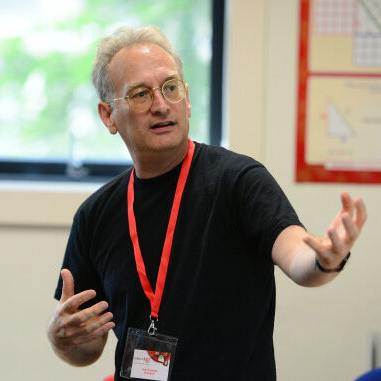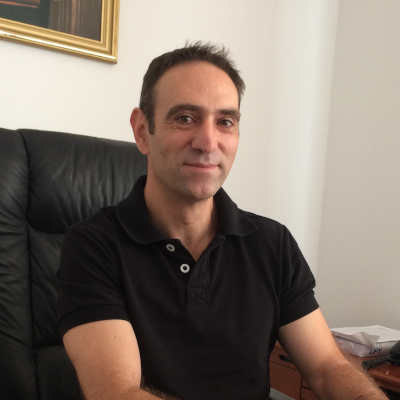Committees
Organizing Committee
- Ana Raquel Prada
(Instituto Politécnico de Bragança, Portugal) - Cristina Mesquita
(Instituto Politécnico de Bragança, Portugal) - Elisabete Mendes
Silva
(Instituto Politécnico de Bragança, Portugal) - Jacinta Costa
(Instituto Politécnico de Bragança, Portugal) - Luís Castanheira
(Instituto Politécnico de Bragança, Portugal)
Organizing Committee
- Manuel Vara Pires
(Instituto Politécnico de Bragança, Portugal) - Maria da Conceição
Martins
(Instituto Politécnico de Bragança, Portugal) - Paula Vaz
(Instituto Politécnico de Bragança, Portugal) - Rui Pedro Lopes
(Instituto Politécnico de Bragança, Portugal)
Scientific Committee
- Adorinda
Gonçalves
(Instituto Politécnico de Bragança, Portugal) - Alessandra
Straniero
( University di Calábria, Itália) - Alexia Dotras
Bravo
(Instituto Politécnico de Bragança, Portugal) - Amélia
Marchão
(Instituto Politécnico de Portalegre, Portugal) - Ana Claudia
Loureiro
( Instituto Politécnico de Bragança, Portugal) - Ana Garcia
Valcárcel
(Universidad de Salamanca, Espanha) - Ana Lúcia
Pinto
( Instituto Politécnico de Bragança, Portugal) - Ana Paula Florêncio
Aires
(Universidade de Trás-os-Montes e Alto Douro, Portugal) - Ana Paula
Laborinho
(Fundación Euroamérica, Portugal) - Ana Paula
Martins
(Universidade do Minho, Portugal) - Ana Raquel
Prada
(Instituto Politécnico de Bragança, Portugal) - António Carlos
Cortez
( Universidade do Minho, Portugal) - António
Domingos
( Universidade Nova de Lisboa, Portugal) - António
Guerreiro
(Universidade do Algarve, Portugal) - António
Nóvoa
(Universidade de Lisboa, Portugal) - António
Vasconcelos
(Instituto Politécnico de Setúbal, Portugal) - Ariana Cosme
(Universidade do Porto, Portugal) - Carla Araújo
(Instituto Politécnico de Bragança, Portugal) - Carla
Guerreiro
(Instituto Politécnico de Bragança, Portugal) - Carlos Neto
(Universidade de Lisboa, Portugal) - Carlos
Silva
(Universidade do Minho, Portugal) - Carlos
Teixeira
(Instituto Politécnico de Bragança, Portugal) - Catarina
Vasques
(Instituto Politécnico de Bragança, Portugal) - Chee Hoo Lum
(National Institute of Education, Nanyang Technological University, Singapura) - Christine
Pascal
(Centre for Research in Early Childhood, Birmingham, Reino Unido) - Cláudia
Martins
(Instituto Politécnico de Bragança, Portugal) - Cristina
Martins
(Instituto Politécnico de Bragança, Portugal) - Cristina
Mesquita
(Instituto Politécnico de Bragança, Portugal) - Daniela
Gonçalves
(Escola Superior de Educação de Paula Frassinetti) - Delmina
Pires
(Instituto Politécnico de Bragança, Portugal) - Domingos
Fernandes
(Universidade de Lisboa, Portugal) - Eduardo
Lopes
(Universidade de Évora, Portugal) - Elisabete Mendes
Silva
(Instituto Politécnico de Bragança, Portugal) - Elza
Mesquita
(Instituto Politécnico de Bragança, Portugal) - Evangelina
Bonifácio
(Instituto Politécnico de Bragança, Portugal) - Feliciano
Veiga
(Universidade de Lisboa, Portugal) - Fernando
Martins
(Instituto Politécnico de Coimbra, Portugal) - Flávia
Vieira
(Universidade do Minho, Portugal) - Gabriela
Portugal
(Universidade de Aveiro, Portugal) - Gianina
Ana-Massari
(Universitatea Alexandru Ioan Cuza Din Iasi, Roménia) - Graça Santos
(Instituto Politécnico de Bragança, Portugal) - Helena Rocha
(Universidade Nova de Lisboa, Portugal) - Henrique
Teixeira-Gil
(Instituto Politécnico de Castelo Branco, Portugal) - Ilda Ribeiro
(Instituto Politécnico de Bragança, Portugal) - Isabel
Cabrita
(Universidade de Aveiro, Portugal) - Isabel
Chumbo
(Instituto Politécnico de Bragança, Portugal) - Isabel
Mociño-González
(Universidad de Vigo, Espanha) - Isabel Vale
(Instituto Politécnico de Viana do Castelo, Portugal) - Isolina
Oliveira
(Universidade Aberta, Portugal) - Jacinta
Costa
(Instituto Politécnico de Bragança, Portugal) - Joaquim
Machado
(Universidade Católica Portuguesa, Portugal) - Jorge Garcês
Ferrer
(Universidad de València, Espanha) - Jorge Ramos do
Ó
(Universidade de Lisboa, Portugal) - José Manuel Cardoso
Belo
(Universidade de Trás-os-Montes e Alto Douro, Portugal) - Juan R. Coca
(Universidad de Valladolid, Espanha) - Juan-Carlos Hernández
Beltrán
(Universidad de Salamanca, Espanha) - Júlia
Oliveira-Formosinho
(Universidade Católica Portuguesa, Portugal) - Ledia
Kashahu
(Aleksandër Moisiu University of Durrës, Albânia) - Leoncio
Vega-Gil
(Universidad de Salamanca, Espanha) - Letizia
Cinganotto
(National Institute for Documentation, Innovation, Educational Research, Itália) - Lídia Machado dos
Santos
(Instituto Politécnico de Bragança, Portugal)
Scientific Committee
- Lídia Sanz
Molina
(Universidad de Valladolid, Espanha) - Lina Fonseca
(Instituto Politécnico de Viana do Castelo, Portugal) - Lourdes
Montero
(Universidad de Santiago de Compostela, Espanha) - Lucía Casal de la
Fuente
(Universidad de Vigo, Espanha) - Luciana
Cabral Pereira
(Universidade de Trás-os-Montes e Alto Douro, Portugal) - Luís
Barbeiro
(Instituto Politécnico de Leiria, Portugal) - Luís
Castanheira
(Instituto Politécnico de Bragança, Portugal) - Luís
Sebastião
(Universidade de Évora, Portugal) - Luisa
Panichi
(Università di Pisa, Itália) - Maja
Ljubetic
(University of Split, Croacia) - Manuel
Meirinhos
(Instituto Politécnico de Bragança, Portugal) - Manuel Vara
Pires
(Instituto Politécnico de Bragança, Portugal) - Maria Antonia
Mezquita-Fernández
(Universidad de Valladolid, Espanha) - Maria Assunção
Flores
(Universidade do Minho, Portugal) - Maria da Conceição
Martins
(Instituto Politécnico de Bragança, Portugal) - Maria do Céu
Ribeiro
(Instituto Politécnico de Bragança, Portugal) - Maria do Céu
Roldão
(Universidade Católica Portuguesa, Portugal) - María Dolores
Alonso-Cortés
(Universidad de León, Espanha) - Maria
Figueiredo
(Instituto Politécnico de Viseu, Portugal) - Maria Isabel
Castro
(Instituto Politécnico de Bragança, Portugal) - Maria José
Rodrigues
(Instituto Politécnico de Bragança, Portugal) - Maria Raquel
Patrício
(Instituto Politécnico de Bragança, Portugal) - Marília Castro
Cid
(Universidade de Évora, Portugal) - Mário
Cardoso
(Instituto Politécnico de Bragança, Portugal) - Mark Daubney
(Instituto Politécnico de Leiria, Portugal) - Marta Saracho
Aranaíz
(Instituto Politécnico do Porto, Portugal) - Mercedes
López-Aguado
(Universidad de León, Espanha) - Michiel
Heijnen
(Marnix Academie Utrecht, Países Baixos) - Miguel Angél Santos
Guerra
(Universidad de Málaga, Espanha) - Miguel
Ribeiro
(UniCamp, Brasil) - Nélia Amado
(Universidade do Algarve, Portugal) - Nelson
Zagalo
(Universidade de Aveiro, Portugal) - Neusa Branco
(Instituto Politécnico de Santarém, Portugal) - Nuno Paula
Santos
(Instituto Politécnico de Bragança, Portugal) - Olga Santos
(Instituto Politécnico de Leiria, Portugal) - Paula Maria
Barros
(Instituto Politécnico de Bragança, Portugal) - Paula Vaz
(Instituto Politécnico de Bragança, Portugal) - Paulo Afonso
(Instituto Politécnico de Castelo Branco, Portugal) - Pedro
Mucharreira
(Universidade de Lisboa, Portugal) - Pedro Tadeu
(Instituto Politécnico da Guarda, Portugal) - Pilar Gútiez
Cuevas
(Instituto Politécnico da Guarda, Portugal) - Rafaela Camargo
Maia
(Instituto Federal de Educação, Ciência e Tecnologia do Ceará, Brasil) - Rosa Novo
(Instituto Politécnico de Bragança, Portugal) - Rui Pedro
Lopes
(Instituto Politécnico de Bragança, Portugal) - Rui Trindade
(Universidade do Porto) - Rui Vieira
(Universidade de Aveiro, Portugal) - Sandie
Mourão
(Universidade Nova de Lisboa, Portugal) - Sandra Regina
Soares
(Universidade Estadual da Bahia, Portugal) - Sandra
Regina Siares
(Universidade Estadual da Bahia, Portugal) - Sani Rutz da
Silva
(Universidade Tecnológica Federal do Paraná, Brasil) - Sara Barros
Araújo
(Instituto Politécnico do Porto, Portugal) - Sofia
Bergano
(Instituto Politécnico de Bragança, Portugal) - Sónia
Galinha
(Instituto Politécnico de Santarém, Portugal) - Susana
Carreira
(Universidade do Algarve, Portugal) - Susana
Colaço
(Instituto Politécnico de Santarém, Portugal) - Susana Gómez
Redondo
(Universidad de Valladolid, Espanha) - Susana
Peralta
(Nova School of Busisness and Economics, Portugal) - Tony Bertram
(University of Birmingham, CREC, Reino Unido) - Vanessa Delgado
Benito
(Universidad de Burgos, Espanha) - Victoria
Stratan
(Ion Creangă State Pedagogical University of Chisinau, Moldávia) - Vitor
Gonçalves
(Instituto Politécnico de Bragança, Portugal)
Previous Editions
Publications
In the boxes below, you’ll find links to the proceedings and summaries of previous editions of INCTE.
INCTE'16
The 1st International Meeting on Teacher Education – Challenges and Perspectives aimed to: – Discuss, within the framework of the Bologna Process, the curriculum structures of teacher education; – Debate innovative didactic proposals in teacher education; – Reflect on training practices in various contexts; – Analyze the contribution of education in enhancing institutions; – Strengthen communication among different stakeholders in education with a view to development.
INCTE'16 Proceedings →INCTE'16 Summaries →
INCTE'17
The 2nd International Meeting on Teacher Education aimed to: – Discuss, within the framework of the Bologna Process, the curriculum structures of teacher education; – Debate innovative didactic proposals in teacher education; – Reflect on training practices in various contexts; – Analyze the contribution of education in enhancing institutions; – Strengthen communication among different stakeholders in education with a view to development.
INCTE'17 Proceedings →INCTE'17 Summaries →
INCTE'18
The 3rd International Meeting on Teacher Education aimed to: – Discuss, within the framework of the Bologna Process, the curriculum structures of teacher education; – Debate innovative didactic proposals in teacher education; – Reflect on training practices in various contexts; – Analyze the contribution of education in enhancing institutions; – Strengthen communication among different stakeholders in education with a view to development.
INCTE'18 Proceedings →INCTE'18 Summaries →
INCTE'19
The 4th International Meeting on Teacher Education (INCTE) had six objectives, requiring passion, rational criticism, and creativity from its participants. Passion provides the motivation to persist in the theoretical and methodological pursuit of the best questions and answers to educational challenges.
INCTE'19 Proceedings →INCTE'19 Summaries →
INCTE'20
The 5th International Meeting on Teacher Education (INCTE) had six objectives, requiring passion, rational criticism, and creativity from its participants.
INCTE'20 Proceedings →INCTE'20 Summaries →
INCTE'22
It is undeniable that the pandemic, with its unprecedented global reach, has impacted many dimensions of our lives in both the short and long term. This situation has required renewed efforts from all sectors of society to face even more uncertain, complex, and challenging circumstances.
INCTE'22 Proceedings →INCTE'22 Summaries →
INCTE'23
Increasingly interdependent political, economic, and social issues mean that changes in one area ripple through the others. Technological development is another area that has posed societal challenges but also offers opportunities for scientific, cultural, and social interaction, fostering creativity and innovation.
INCTE'23 Proceedings →INCTE'23 Summaries →
Sponsors





